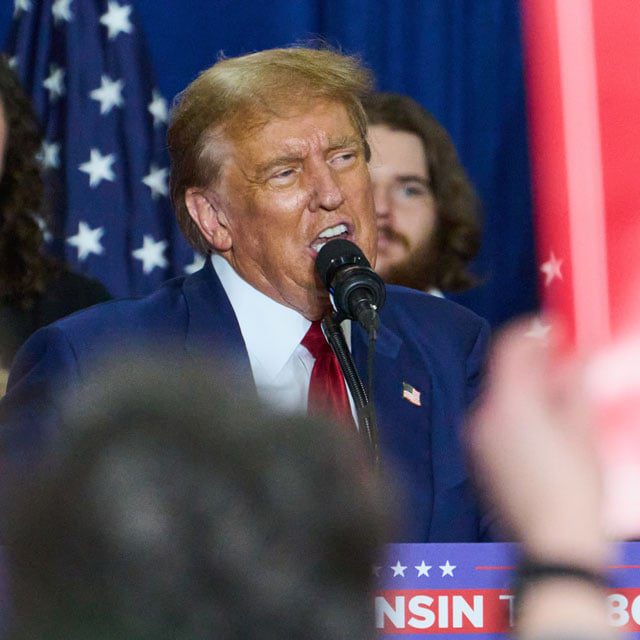With Trump in Court, Former Advisors Are Quietly Drafting His Tax, Economic Policies

What You Need to Know
Competing factions are said to be offering sometimes conflicting plans on tariff hikes, China, health care and taxes.
Aides agree on extending key portions of Trump’s 2017 tax cuts but disagree on how to offset the cost.
Trump campaign officials say the outsiders aren’t speaking on behalf of the campaign.
As Donald Trump spends his days on trial in a New York City courthouse, a clutch of former advisors are quietly drafting his economic policy over phone calls, emails and drinks.
These competing factions of outside advisors are offering sometimes conflicting plans on tariff hikes, China, health care and taxes, according to people with knowledge of the matter. And their strategy aims to both persuade Trump and audition for potential Cabinet jobs should the Republican succeed in winning back the U.S. presidency.
Trump’s ambitions to remake the U.S. government have come under attack from Democrats who have labeled them extreme. By allowing outside advisors to craft his policy agenda, Trump can embrace only the ideas he likes and shun the ones that become politically toxic.
Trump has said he will impose stiffer tariffs on China, expand domestic energy drilling, reverse President Joe Biden’s subsidies for electric vehicles and green energy and demand Congress extend tax cuts set to expire in 2025. But that still leaves advisors and think tanks room to fill in the blanks.
The Heritage Foundation, America First Policy Institute, Center for Renewing America and the Conservative Partnership Institute are among the groups delving into the weeds of economic policy, drafting plans in hopes of positioning themselves as the go-to source for ideas in another Trump term.
Top Trump White House officials are heavily involved in the discussions, including Russ Vought, former director of the Office of Management and Budget. Robert Lighthizer, the former U.S. Trade Representative, is leading some trade discussions, while Kevin Hassett, the former chair of the Council of Economic Advisers, is running point on several economic issues. Hassett and Trump speak often, said one person familiar with their phone calls.
A slew of other aides from Trump’s Treasury Department, Commerce Department, Securities and Exchange Commission, Federal Housing Finance Agency and the World Bank are also involved in discussions. Those people are also subtly jockeying for top roles in a new administration as they audition their policy ideas, people familiar said.
“Unless a message is coming directly from President Trump or an authorized member of his campaign team, no aspect of future presidential staffing or policy announcements should be deemed official,” top Trump campaign advisors Susie Wiles and Chris LaCivita said in a statement.
‘Disposable’ Advisors
Wiles and LaCivita have repeatedly made it clear they do not want any of these advisors or groups to speak on behalf of the campaign. The campaign has been infuriated by recent stories detailing potential policy moves without their approval and has issued stern warnings to people who imply their ideas have Trump’s backing.
“Despite our being crystal clear, some ‘allies’ haven’t gotten the hint, and the media, in their anti-Trump zeal, has been all-too-willing to continue using anonymous sourcing and speculation about a second Trump administration in an effort to prevent a second Trump administration,” the two aides said in their statement.
“If you have people with no title as informal advisors, they are by definition disposable,” said Douglas Holtz-Eakin, a former advisor to President George W. Bush and John McCain’s presidential campaign. “You can get rid of the person easily and that gives you an arm’s length deniability.”




